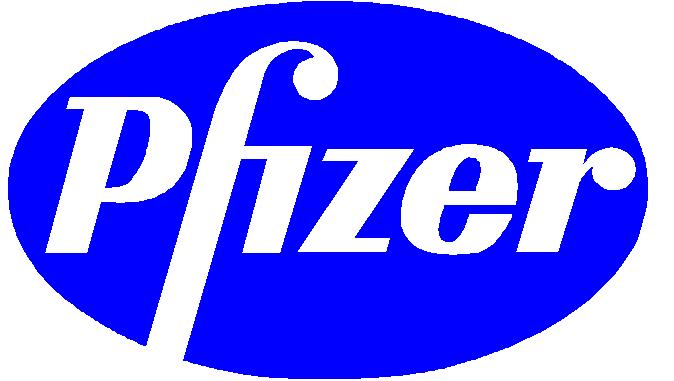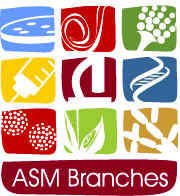|
2003 SPRING
MEETING
Saturday, April 5
MICHIGAN
BRANCH
of the AMERICAN SOCIETY for
MICROBIOLOGY
A conference on "Emerging and Re-emerging Pathogens
II"
will be held at PFIZER GLOBAL Research and Development
Facility,
Ann Arbor,
Michigan on Saturday, April 5.

Organizer: Michael D.
Huband |
 The Michigan
ASM extends a special invitation to our colleagues in CANADA to join us for this
one-day conference at PFIZER GLOBAL R & D in Ann
Arbor. The Michigan
ASM extends a special invitation to our colleagues in CANADA to join us for this
one-day conference at PFIZER GLOBAL R & D in Ann
Arbor. |
Conference Speakers
ASM Foundation
Speaker DR. W. IAN
LIPKIN, Director of
the Center for Immunopathogenesis and Infectious Diseases, Professor of
Epidemiology and Neurology, Columbia University, New York, NY. Dr. Lipkin
will address the topic: "Borna Disease
Virus Molecular Biology and Pathogenesis".
W. Ian Lipkin, MD, is a National ASM Foundation Speaker with over
33 publications and is currently Professor of Epidemiology in the Mailman
School of Public Health, Professor of Neurology in the College of Physicians
and Surgeons, and Director of both the Center for Immunopathogenesis and
Infectious Diseases, and the Center for Neurodevelopmental Disorders. Dr.
Lipkin moved to Columbia University in July 2002 from the University of California Irvine where he was the Louise Turner Arnold Chair of Neuroscience, Director of the Emerging Diseases Laboratory and Professor in the Departments of Neurology,Anatomy and Neurobiology, and Microbiology, and Molecular Genetics. He is internationally recognized as an authority on the use of molecular biological methods for pathogen discovery and the role of immune and microbial factors in neurologic and neuropsychiatric diseases.
Dr. Lipkin received a BA from Sarah Lawrence College in 1974, where he studied
cultural anthropology, philosophy, and literature; and an MD from Rush Medical
College in 1978. His postgraduate training included Clerkship at the Queen
Square Institute of Neurology in London, UK (1977-78); Internship in Medicine
at the University of Pittsburgh (1978-79); Residency in Internal Medicine
at the University of Washington (1979-81), Residency in Neurology at the
University of California, San Francisco (UCSF, 1981-84), and Fellowship in
Neurovirology and Molecular Neurobiology at The Scripps Research Institute
in La Jolla (TSRI, 1984-1990). His honors include National Multiple Sclerosis
Society Postdoctoral Fellowship, 1984-1987, Clinical Investigator Development
Award, National Institutes of Health, National Institute of Neurological
and Communicative Disorders and Stroke, 1987-1992, NARSAD Young Investigator,
1991, Pew Scholar, 1991, Visiting Professor, Japanese Human Science Foundation,
1999, Visiting Bruenn Professor, Columbia College of Physicians and Surgeons,
2000, Louise Turner Arnold Chair in the Neurosciences, 2000, Foundation Lecturer, American Society of Microbiology, 2001, Ellison Medical Foundation Senior Scholar in Global Infectious Diseases, 2001.
While a Resident in Neurology, Dr. Lipkin established the first clinic for
investigating neurologic manifestations of HIV infection. In 1983, he identified
AIDS-associated inflammatory neuropathy and demonstrated that this crippling
syndrome could be treated with plasmapheresis. In 1988 as a fellow with Dr.
Michael Oldstone at TSRI he demonstrated that early life viral infection
can cause behavioral and neurotransmitter disturbances without obvious evidence
of brain infection or injury. The observation that cryptic infection can
influence brain function is increasingly recognized as important in the context
of neuropsychiatric diseases such as autism and schizophrenia; and it may
also play a role in neurodegenerative disorders. To address such questions,
Dr. Lipkin created molecular methods for rapidly detecting unknown viruses
in clinical materials. The first application of these methods resulted in
identification of Borna disease virus, a new type of virus that had eluded
classical methods for virus purification. Since isolating the first genes
of this virus in 1990, Dr. Lipkin cloned its genome and defined its replication
strategy and the molecular basis for neurotropism and behavioral syndromes
associated with acute and persistent brain infection. An international multi-center program coordinated by Dr. Lipkin is assessing the role of Borna disease
virus in human neuropsychiatric diseases using methods patented by Lipkin,
Briese and colleagues. Dr. Lipkin is the leader of the team that established
the method of domain specific differential display and subsequently identified
the West Nile virus in the brains of encephalitis victims in New York State
in the fall of 1999.
ASM Foundation Speaker (sponsored by
Pfizer) DR. KENNETH E.
ALDRIDGE, Director of Infectious
Diseases, Professor of Medicine and Pathology, Louisiana State University, New
Orleans, LA will speak on: "CONSIDERATIONS OF EVOLUTIONARY AND
SELECTIVE PRESSURES FOR INCREASING BACTERIAL RESISTANCE TO ANTIBIOTICS"
Kenneth Edward Aldridge, Ph.D. is currently
Professor of Medicine, Pathology, and Obstetrics-Gynecology, and Director of the Infectious Disease Laboratories at Louisiana State University Health Sciences Center in New Orleans. He also serves as consultant Microbiologist with Charity/University Hospitals at the University. He is a member of the Graduate Faculty in the School of Medicine, and has served as Adjunct Professor in the Department of Ob-Gyn at Tulane University Medical Center. Committee appointments at LSU Health Sciences Center include Antibiotic Subcommittee (P and T Committee), Bioterrorism Preparedness Committee, Institutional Review Board, Department of Medicine Safety Committee, and Medical School Admissions Committee.
Dr. Aldridge received his Ph.D. from the University of
Mississippi in 1974. He did his NIH/postdoctoral training in Clinical
Microbiology/Pathology at the University of Utah Medical Center from 1974-1978. There he served as Assistant Director/Microbiology at the University of Utah Medical Center and Clinical Microbiology Consultant at the VA Hospital of Salt Lake City, Utah. Dr. Aldridge serves on numerous professional committees and societies including: The National Committee for Clinical Laboratory Standards; the American Society for Microbiology; the Infectious Diseases Society of America; the Infectious Disease Society for Obstetrics and Gynecology; the American Academy for Microbiology; and the Southern Society for Clinical Investigation. Dr. Aldridge is a publications reviewer for Antimicrobial Agents and Chemotherapy, Clinical Infectious Diseases, Journal of Antimicrobial Chemotherapy, and European Journal of Clinical Microbiology and Infectious Diseases and currently is (or has served) on the Editorial boards of: Diagnostic Microbiology and Infectious Diseases; Antimicrobics Newsletter; Infectious Diseases in Obstetrics and Gynecology; Antibiotics for Clinicians and Advances in Therapy. He has written over 130 articles, chapters and monographs, as well as 120 abstracted presentations.
Dr. Aldridge�s research interests include the prevalence
and mechanisms of antimicrobial resistance in aerobic and anaerobic bacteria,
the pathogenicity and therapy of mixed aerobic/anaerobic infections, emergence
and control of hospital-acquired infections and the development of rapid
diagnostic and antimicrobial susceptibility methods.
Most recently Dr. Aldridge was honored as a Selman A.
Waksman Foundation Lecturer (2002-2004) by his colleagues of the American
Society for Microbiology.
DR. BILL BROWN, Director of Clinical
Microbiology, Detroit Medical Center, Detroit MI will address the topic
"Isolation and Identification of
Vancomycin-Resistant Staphylococcus aureus".
Dr. William J. Brown received his bachelor�s degree from the University
of Scranton in 1963, and his master�s degree from Duquesne University in
1965. He received his Ph.D. from West Virginia University in 1969 and
was the recipient of a pre-doctoral fellowship from NASA. While pursuing
his degrees, Dr. Brown worked as a laboratory technician and microbiology
lab supervisor at Geisinger Medical Center and Mercy Hospital in Pennsylvania.
In 1968, he was appointed to the position of instructor in the department
of microbiology at Wayne State University (WSU) School of Medicine and has
taught microbiology, immunology and pathology, at various levels for the
past 34 years. He is currently a full professor and Board Certified
in Medical and Public Health Microbiology by the American Academy of Microbiology.
He began his hospital affiliations in 1969 at Detroit General Hospital as
a consultant microbiologist. He went on to serve as director
of the special diagnostic laboratory at WSU; consultant microbiologist at
the VA hospital in Allen Park; Director of Microbiology/Immunology at Hutzel
Women�s Hospital; and technical director (Microbiology/Immunology) of the
Damon clinical laboratories at the Detroit Medical Center (DMC). He
was appointed to his current position with DMC University Laboratories in
1993. During the past 22 years, he has also served on numerous local
infection control committees.
Dr. Brown is the recipient of many grants for research including the study
of the effectiveness of antibiotics; various aspects of sexually transmitted
diseases; HIV; and antibiotic resistant microbes. He has published
over 60 articles in refereed journals along with numerous books, chapters,
abstracts, and reviews.
He has served on boards and committees for such organizations as: the American
Society for Microbiology, the National Registry of Microbiologists, the Michigan
Branch of the ASM, the South Central Association for Clinical Microbiology,
and the Bureau of Laboratory and Epidemiological Services of the Michigan
Dept. of Public Health.
Dr. Brown is a diplomat of the America Board of Molecular and Medical Microbiology,a Fellow of the American Academy of Microbiology, and a specialist in Public Health and Medical Microbiology. He was named the Outstanding Clinical Microbiologist of the Year (1996) by the South Central Assoc. of Clinical Microbiology. He is a member of several professional societies including the American Society for Microbiology and the Conference of Public Health Laboratory Directors.
CONFERENCE MENU
PROGRAM AGENDA
8:00 - 9:00
AM Registration, Continental Breakfast (sponsored by Pall Life Sciences), Corporate Exhibit & Poster
set-up
9:00
AM Welcome and opening remarks (Dr. Judith
Whittum-Hudson, MI-ASM President)
9:15 AM Dr. John Domagala, Executive Director � Antibacterials, Pfizer
Global R & D:
Resistance: The Myths,
the Truth, and Who Cares
9:30
AM Dr. W. Ian Lipkin, ASM Waksman Foundation Lecturer: Borna Disease Virus
10:30 - 11:00 AM
Refreshment break/ visit Posters and Exhibits
11:00
AM Dr. Kenneth E. Aldridge, ASM Waksman Foundation Lecturer:
Bacterial Resistance
12:00
- 1 PM Lunch & Business Meeting (officer
election results announced), prizes
awarded, visit Corporate Vendors and Student Posters; talk with speakers
1:00
- 2:00 PM Dr.
Bill Brown: Isolation and Identification of VRSA
2:00 - 2:30 PM Two 15-minute Dry Workshops
(sponsored by Pall Life Sciences)
* Pall Life Sciences Corporation Dry Workshop (Genomics, Proteomics,
Microarrays)
* Dr. Jeff Hobden, Department of Immunology & Microbiology,Wayne State
University Medical School (New Technologies for Examining Host-Pathogen
Interactions)
POSTER PRESENTATION GUIDELINES
The Michigan
ASM encourages students (both undergrads and graduate students), as well as
faculty and other professional microbiologists, to present posters at our fall
and spring meetings. Ideally a poster presentation would relate to the general
theme of the conference, but that is not a criterion for submission. If you
would like to present a poster of your research at this MI-ASM CONFERENCE,
follow the guidelines below.
Students who
present a poster do not pay the conference registration
fee
and they also receive one year free membership in
MI-ASM. STUDENT ENTRIES will be judged by branch members and the winner of the
"Best Student Poster" will receive a framed certificate, a copy of Dr. Philipp
Gerhardt's classic text, and a free membership to the National
ASM.
- Submit
your name, college or university you attend, department affiliation, the full
title of your poster, and a brief (200 words) abstract of its content to the
conference organizer. The deadline for
submitting abstracts for posting on this website is April 3. You may submit abstracts after this date, but they
may not be posted prior to the conference.
- Use a
Times Roman 12-pt. font if possible.Type the title first then list the authors
(all capital letters; use an asterisk to denote the person delivering
the poster), then list institutions and short addresses. You may include
e-mail addresses if you wish.
- Abbreviations that are generally understood are
acceptable.
- Underline
or italicize scientific names.
- Please
submit the above by email to: rgorton@lcc.edu Send the information within the body of the e-mail message
and not as an attached file. You will receive electronic confirmation that
your poster info arrived safely from cyberspace! Your poster abstract will
automatically be forwarded to the Conference Organizer, Mike
Huband.
- If there
is sufficient time, we will post early submitted abstracts on this meeting web
site. All poster abstracts will be posted as part of the on-line
post-conference summary.
- If you
presented your poster at an ASM National Meeting or at another conference,
please note that in your abstract submission.
- If you
have any questions regarding posters, please contact Mike Huband
Non-students may also
submit posters; simply follow the above
guidelines.
For further information, contact the conference campus
organizers:
MICHAEL
HUBAND
President-Elect of MI-ASM
Pfizer Gobal R & D
Antibacterial Pharmacology
Department
2800 Plymouth Road
Ann Arbor, MI
48105
Email: Michael.Huband@pfizer.com |
MICHAEL
COHEN
Corporate Liaison, MI-ASM
Head -
Clinical Microbiology
Pfizer Gobal R & D
Antibacterial Pharmacology Department
2800 Plymouth
Road
Ann Arbor, MI 48105
Email: Michael.Cohen@pfizer.com |
|



